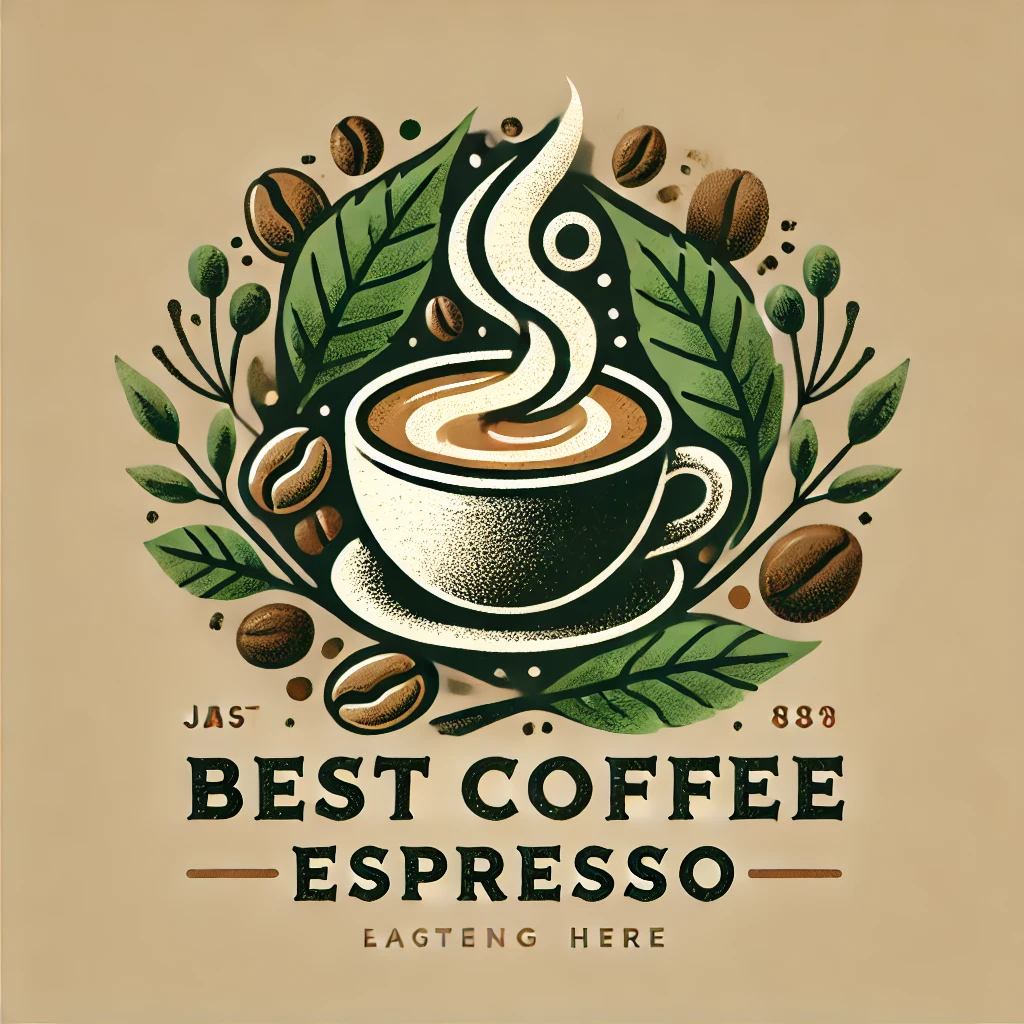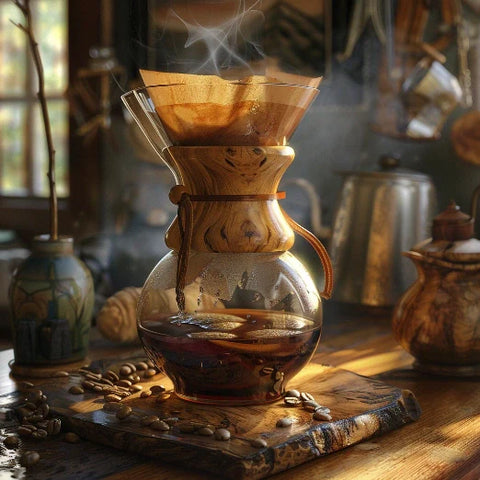How long should you percolate coffee? The answer depends on taste and brewing method.
The answer to this question varies based on your taste preferences and the brewing method. Generally, percolating coffee takes about 7-10 minutes for a balanced flavor. If you like strong coffee, you might need a little more time, but if you prefer a milder brew, less time is ideal. Let’s explore how to percolate your coffee just right, so you can enjoy the best cup every time.
Introduction to Coffee Percolation
Brewing coffee is an art, and one brewing method that stands out is coffee percolation. This method involves cycling boiling water through coffee grounds, extracting rich flavors and aromas. Coffee lovers have been using this method for years because it creates a strong, full-bodied cup of coffee.
If you’re asking, “How long should you percolate coffee?”, you’ve come to the right place. We’ll dive into everything you need to know to brew the perfect cup.
What Is Percolation?
Percolation is a coffee brewing process where hot water is forced through coffee grounds in a cyclical pattern. The water is heated and then passes over the grounds multiple times. Each cycle extracts flavors from the coffee, and the process continues until the desired strength is achieved.
You can use a stovetop percolator or an electric percolator. Both methods follow the same basic idea, but the key is finding the right timing for your coffee.
Importance of Brewing Time
The brewing time in the percolation process is critical. If you brew for too short a time, the coffee may be too weak. Brew for too long, and the coffee can become bitter. Timing is everything when percolating.
Here’s a quick guide to help you choose the right brewing time based on your preferred strength:
| Desired Strength | Percolation Time |
|---|---|
| Mild | 5-7 minutes |
| Medium | 7-9 minutes |
| Strong | 9-11 minutes |
For most coffee drinkers, 7-9 minutes is the ideal time, offering a rich, balanced flavor. However, feel free to adjust the time slightly based on your preferences.

Ideal Percolation Time
To achieve that perfect cup of coffee, it’s essential to get the percolation time right. While the standard percolation time is generally between 7-10 minutes, many factors can influence this. If you want to maximize flavor extraction, you’ll want to keep track of your brewing time.
Standard Percolation Duration
For most people, the ideal percolation duration falls between 7 and 10 minutes. This range helps extract the rich flavors from the coffee grounds without pulling out too many bitter compounds. However, factors like grind size, water temperature, and coffee quantity can all affect this time.
Factors Influencing Percolation Time
Several key factors impact how long you should percolate your coffee. Understanding these will help you brew the best cup based on your preferences.
Grind Size
The grind size affects how long it takes to extract the flavors. A finer grind extracts quicker, so you’ll need a shorter brewing time. Coarser grinds take longer to extract, so they require a bit more time.
| Factor | Effect on Time |
|---|---|
| Grind Size | Finer = Less Time, Coarser = More Time |
| Water Temperature | Hotter = Less Time, Cooler = More Time |
| Coffee Quantity | More Coffee = More Time |
Water Temperature
Hotter water speeds up extraction. Aim for a temperature between 195°F and 205°F (90°C to 96°C). Water that is too hot may cause bitterness, while water that’s too cold won’t extract enough flavor.
Coffee Quantity
Using more coffee grounds will naturally require more time for the flavors to extract. Adjust the percolation time based on the amount of coffee you are brewing.
Choosing the Right Coffee Beans
The right coffee beans can make all the difference in flavor. Your choice of beans impacts the richness, aroma, and overall taste of your coffee. There are a few factors to consider when picking the best beans for percolation.
Bean Types
- Arabica beans are known for their smooth, sweet flavor with hints of fruit and sugar. They’re often the go-to for specialty coffee.
- Robusta beans have a stronger, more bitter taste and more caffeine. They are commonly used in espresso blends.
Arabica is the preferred choice for most coffee drinkers due to its rich flavor.
Roast Levels
The roast level of your beans will greatly influence your coffee’s taste. Here are the three main roast levels:
| Roast Level | Flavor Profile |
|---|---|
| Light Roast | Mild flavor, high acidity, retains natural bean flavors |
| Medium Roast | Balanced flavor, medium acidity, more body |
| Dark Roast | Bold flavor, low acidity, hints of chocolate or smokiness |
Light roasts offer a more delicate taste, medium roasts are balanced, and dark roasts provide a robust and intense flavor. Choose the roast that best matches your taste preferences.
Grind Size and Its Impact on Coffee
Your grind size plays a big role in the final taste of your coffee. A coarser grind requires more time to brew, while a finer grind takes less time. Understanding how grind size affects your coffee will help you achieve the flavor you’re looking for.
| Grind Size | Method | Percolation Time |
|---|---|---|
| Coarse | French Press, Cold Brew | 4-5 minutes, 12+ hours |
| Medium | Drip Coffee, Pour Over | 3-4 minutes |
| Fine | Espresso, Aeropress | 25-30 seconds, 1-2 minutes |
Adjusting your grind size can help you find the right balance of strength and flavor.
Water Quality and Temperature
The quality of water you use, along with the temperature, can significantly impact your coffee’s taste. Here’s how:
Optimal Water Temperature
To get the best extraction, the water temperature should be between 195°F and 205°F (90°C to 96°C). Too hot can burn the coffee, while too cold won’t extract enough flavor.
Using Filtered Water
Filtered water is the best option for brewing coffee. Tap water may contain minerals or impurities that can affect the taste. Filtering the water ensures a cleaner, better-tasting cup of coffee.
| Water Type | Pros | Cons |
|---|---|---|
| Tap Water | Convenient | May contain impurities |
| Filtered Water | Improves taste | Requires filter purchase |
| Bottled Water | Pure | Can be expensive |
Percolation Techniques
Understanding the two main percolation methods—stovetop and electric—can help you choose the best brewing process for your needs.
Stovetop Percolation
This traditional method requires a percolator on the stove. It’s simple, but you need to keep an eye on it to prevent over-extraction. Typically, stovetop brewing takes 7-10 minutes.
Electric Percolators
Electric percolators are more convenient and often feature automatic shut-off to avoid over-brewing. The brewing time for electric percolators is also around 7-10 minutes.
| Feature | Stovetop Percolation | Electric Percolators |
|---|---|---|
| Equipment | Stovetop, Percolator | Electric Percolator |
| Convenience | Manual | Automatic |
| Brewing Time | 7-10 minutes | 7-10 minutes |
| Monitoring Required | Yes | No |
Common Mistakes to Avoid
Brewing coffee with a percolator can be tricky. Here are some common mistakes to watch out for:
Over-percolating
Over-percolating leads to a bitter taste. To avoid this, aim for a brewing time of 7-8 minutes.
Under-percolating
Under-percolating can leave your coffee weak and bland. Make sure you percolate for at least 6 minutes to extract the full flavor.
Enhancing Flavor
You can enhance the flavor of your coffee by adding spices or other additives. Here are a few ideas:
Adding Spices
- Cinnamon: Adds warmth and sweetness.
- Nutmeg: Gives a rich, nutty flavor.
- Cardamom: Adds a spicy, aromatic touch.
Experimenting with Additives
- Vanilla Extract: Makes the coffee smooth and sweet.
- Cocoa Powder: Adds a rich, chocolaty taste.
- Honey: A natural sweetener.
Final Tips
The key to percolating the perfect cup of coffee is in the timing. Here’s a quick recap:
- Grind Size: Use a coarse grind for best results.
- Water Temperature: Keep it just below boiling.
- Percolation Time: Aim for 7 to 10 minutes.
- Watch Closely: Avoid over-percolating to prevent bitterness.
Experts recommend using fresh, high-quality beans, measuring accurately, and cleaning your percolator regularly. With these tips, you’ll be able to make a flavorful cup every time.
Frequently Asked Questions
How Long Should You Percolate Coffee?
Typically, percolate coffee for 7-10 minutes. This ensures optimal flavor extraction without bitterness.
What Is The Best Percolation Time For Strong Coffee?
For stronger coffee, percolate for about 10 minutes. Be cautious not to over-extract.
Can You Over-percolate Coffee?
Yes, over-percolating coffee can cause bitterness. Keep percolation time between 7-10 minutes.
Does Percolation Time Affect Coffee Taste?
Yes, it directly affects the taste. Longer percolation extracts more flavor but can cause bitterness.
Conclusion
Finding the perfect percolation time for your coffee involves some trial and error. Typically, 7-10 minutes works best, but feel free to adjust based on your taste. Keep experimenting until you find the ideal brew. Great coffee takes practice. Happy brewing!

